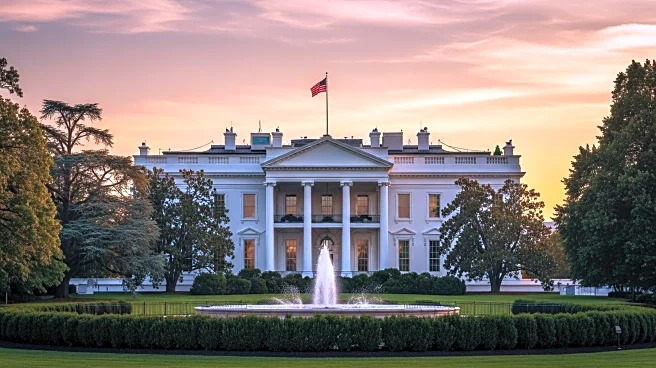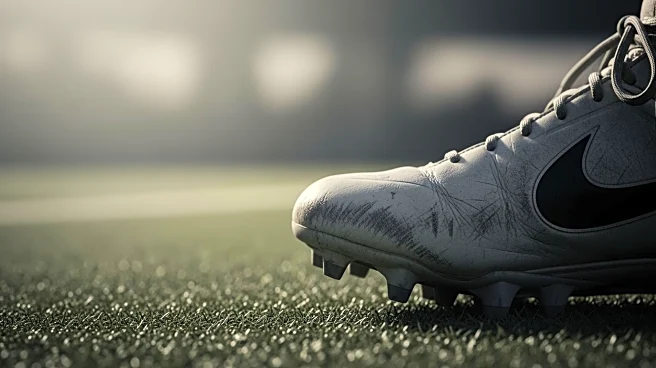What's Happening?
A viral trend on social media falsely claimed that President Trump had died, with over 90,000 posts circulating the rumor. The White House quickly refuted these claims, asserting that the 79-year-old president is in excellent health. Trump was recently seen walking on a golf course, appearing healthy, which many interpreted as a response to the speculation. Vice President JD Vance inadvertently contributed to the rumors by stating he was prepared to step in if a 'terrible tragedy' occurred, although he emphasized Trump's active role and good health. The White House previously disclosed Trump's diagnosis of chronic venous insufficiency and explained the use of makeup to cover a bruise on his hand.
Why It's Important?
The rumors about President Trump's health have sparked widespread discussion and concern, highlighting the impact of misinformation on social media. The situation underscores the importance of transparency from public officials regarding health matters, especially for high-profile figures like the president. The White House's swift response aims to reassure the public and maintain confidence in Trump's ability to fulfill his duties. The incident also reflects the potential for social media to influence public perception and the necessity for accurate information dissemination.
What's Next?
The White House is likely to continue monitoring and addressing any further rumors about President Trump's health to prevent misinformation from spreading. Vice President JD Vance's comments may lead to increased scrutiny of the administration's preparedness for unforeseen circumstances. Public and media attention may focus on Trump's health and activities, prompting further official updates to maintain transparency.
Beyond the Headlines
The viral nature of the 'Trump is dead' rumor highlights the ethical challenges posed by social media platforms in managing false information. It raises questions about the responsibility of these platforms to prevent the spread of harmful rumors and the role of public figures in addressing misinformation. The incident may prompt discussions on the balance between privacy and public interest in the health of political leaders.









